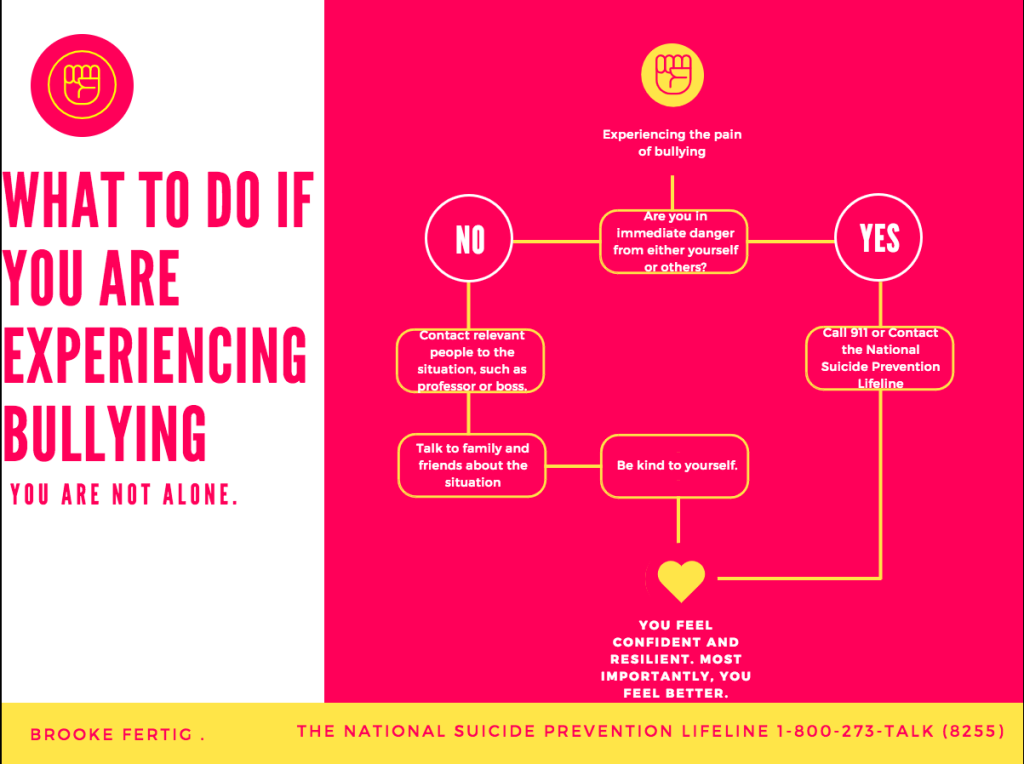Bullying is often discussed in middle school and high school. What happens when bullying finds students at colleges and universities?
It is estimated that approximately 43 percent of college-aged students have experienced bullying, according to a survey conducted by the US National Library of Medicine. Additionally, bullying consistently predicted premature and excessive alcohol consumption. Recent research reveals that bullying does not always end in high school. If the individuals who are the bullies themselves do not take responsibility for their actions, this becomes their pattern of behavior.
Bullying doesn’t end in high school, so why should the awareness?
If there is one thing I have learned by starting college as a freshman, leaving my second semester, and returning as a full-time student, it is that being resilient and confident is more than half of the battle when it comes to bullying.
When I returned to Cabrini University, I was full of light. I was so incredibly thrilled to be continuing my education, especially at a school that I loved as an incoming freshman three years prior. Not only was I excited for the pursuit itself, but I was ecstatic about the classes I was taking. For the duration of my previous schooling, I have always loved reading and writing. This is what made me thrilled to take my classes, as they directly pertained to my passions.
To say my return to school started off with a bang is a complete understatement.
On my first day of classes, I came over prepared. I had every color of pen imaginable, a notebook for every potential topic and any sort of office supply one is able to fit in a standard backpack. Most importantly, I came with an open mind and a positive spirit.
When it came time to attend the class I was looking forward to the most, I took notes quite probably on every single word the professor and fellow students spoke that day. I was actually excited to complete my assignment that week.
To my surprise, the amount of malicious, negative and hateful feedback I received was absolutely soul crushing. I tried to convince myself it must have been a misunderstanding, rather my fault. It must be the way I was perceiving the remarks.
However, after weeks of “nonchalant” comments and backhanded jokes, it was impossible to ignore. I realized that for whatever reason, fellow students had created a preconceived bias of me and that was that. To make the situation even more tormenting, almost every class I took on campus, I would see the same individuals. It is hard to ignore something that you cannot escape from. Despite my always positive attitude, I started to feel the effects of bullying quickly and strongly.
According to a survey cumulatively conducted by dosomething.org and antibullyingpro.com, 38 percent of students believe their school, college or university does not take bullying seriously. Additionally, females are twice as likely as males to be victims or perpetrators of bullying.
After days of self-criticism, I was able to identify what it was that I was experiencing. Most importantly, I recognized that I was not alone. In fact, it was the exact opposite. I realized that I have the ability and the platform to shed light on a topic that is frequently ignored and silenced.
“No one can make you feel inferior without your consent,” Eleanor Roosevelt.





